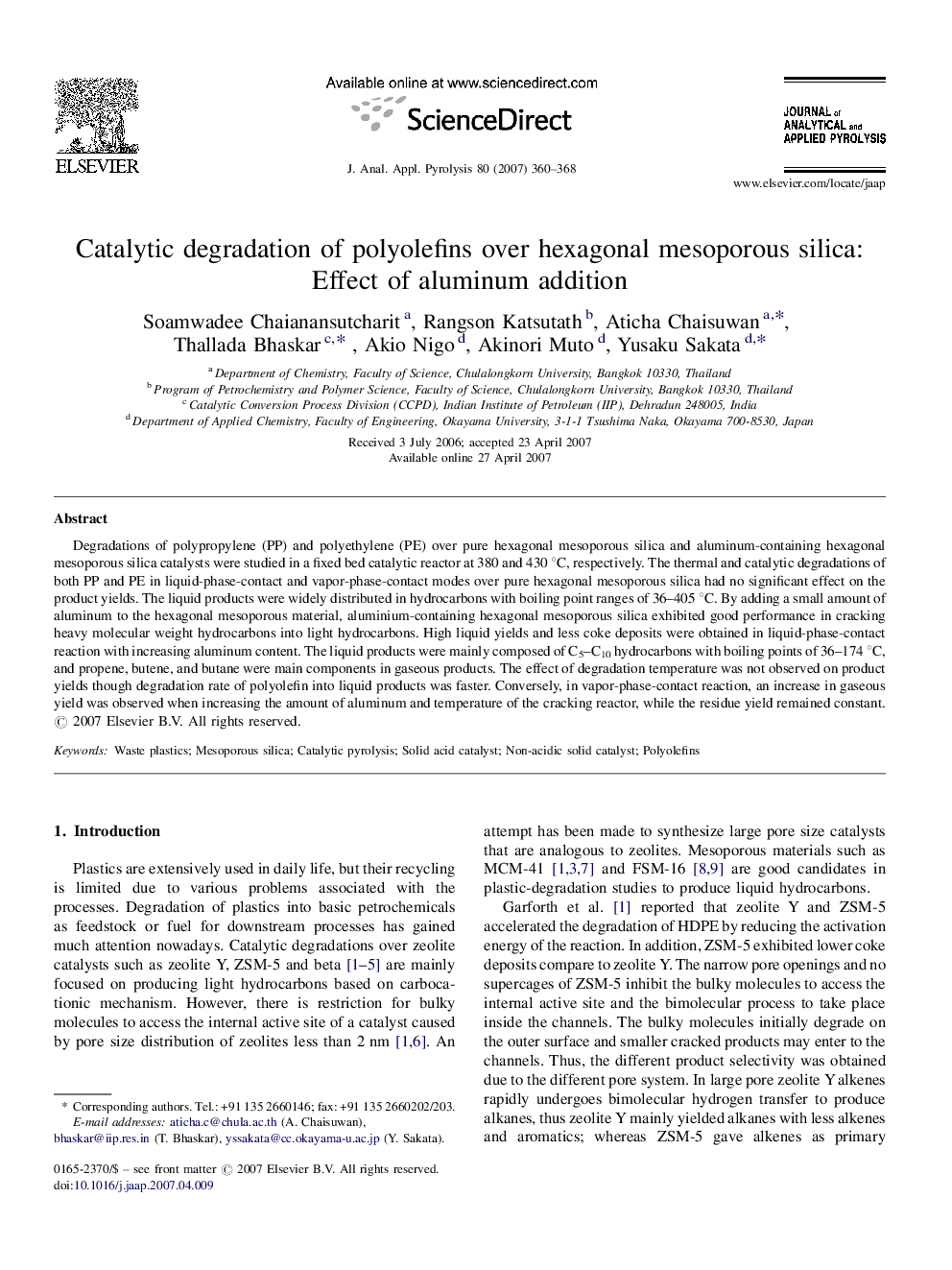| Article ID | Journal | Published Year | Pages | File Type |
|---|---|---|---|---|
| 1197733 | Journal of Analytical and Applied Pyrolysis | 2007 | 9 Pages |
Degradations of polypropylene (PP) and polyethylene (PE) over pure hexagonal mesoporous silica and aluminum-containing hexagonal mesoporous silica catalysts were studied in a fixed bed catalytic reactor at 380 and 430 °C, respectively. The thermal and catalytic degradations of both PP and PE in liquid-phase-contact and vapor-phase-contact modes over pure hexagonal mesoporous silica had no significant effect on the product yields. The liquid products were widely distributed in hydrocarbons with boiling point ranges of 36–405 °C. By adding a small amount of aluminum to the hexagonal mesoporous material, aluminium-containing hexagonal mesoporous silica exhibited good performance in cracking heavy molecular weight hydrocarbons into light hydrocarbons. High liquid yields and less coke deposits were obtained in liquid-phase-contact reaction with increasing aluminum content. The liquid products were mainly composed of C5–C10 hydrocarbons with boiling points of 36–174 °C, and propene, butene, and butane were main components in gaseous products. The effect of degradation temperature was not observed on product yields though degradation rate of polyolefin into liquid products was faster. Conversely, in vapor-phase-contact reaction, an increase in gaseous yield was observed when increasing the amount of aluminum and temperature of the cracking reactor, while the residue yield remained constant.
